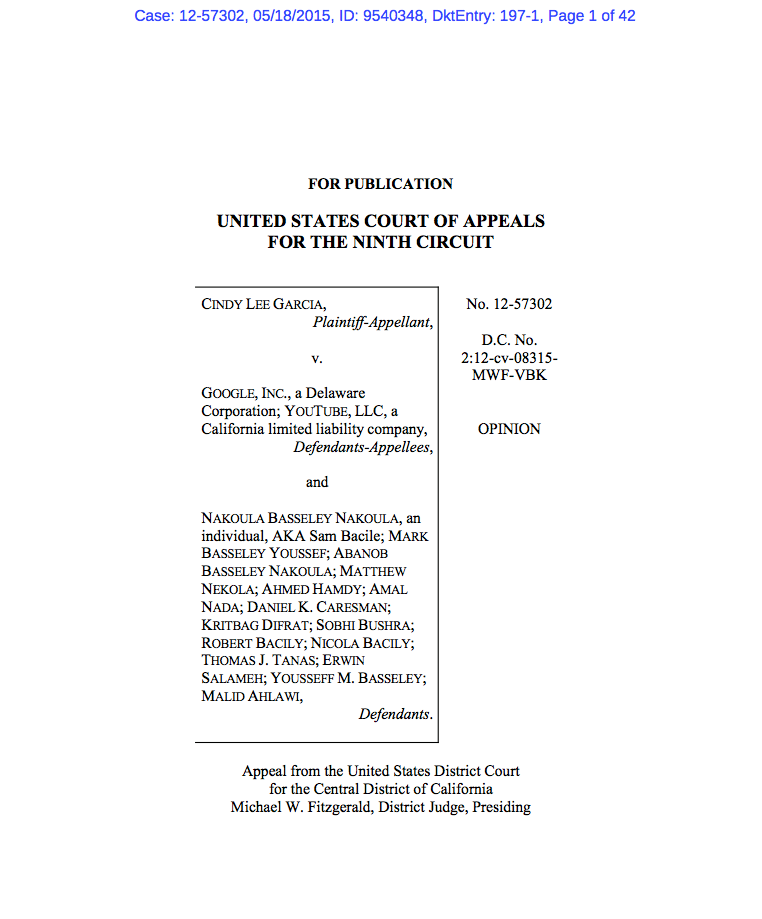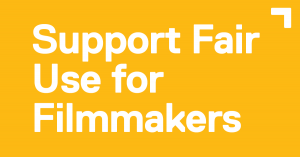Yesterday, the independent filmmaking world breathed a sigh of relief when the Ninth Circuit Court of Appeals reversed an earlier ruling in Garcia v. Google, the infamous “Innocence of Muslims” case. The case concerned whether an actress who appeared onscreen for five seconds in the notorious anti-Islam film has a copyright interest in the picture. This question is important to filmmakers because it’s often not possible to get a release from everyone in the picture. So the IPAT Clinic participated in drafting an amicus brief in the case, explaining why such a ruling could be devastating to independent filmmakers. And the court listened! “As filmmakers warn,” the court wrote, “low-budget films rarely use licenses…. And filming group scenes like a public parade, or the 1963 March on Washington, would pose a huge burden if each of the thousands of marchers could claim an independent copyright.”
IPAT Speaks at Convening of Archive Houses
On April 29 Professor Lerner will be in New York for the Association of Commercial Stock Image Licensors 2015 Footage Expo. Professor Lerner writes: “I’ll be on a panel talking about ‘Intellectual Property on the Move,’ in particular the problems that filmmakers and producers face when creating projects that use a lot of footage. I’m thrilled to have the opportunity to discuss the issues with some of the best legal minds in the country, including Anne Atkinson, Cathy Carapella, Jay Fialkov, Bob Stein, and the one and only Matthew White.”
Putting the ‘Use’ Back in Fair Use
The Washington Post writes about the DMCA exemption that IPAT is seeking on behalf of International Documentary Association, Kartemquin Films, and thousands of filmmakers everywhere. Among other things, they mention a terrific blog post that IPAT students Aaron Benmark ’16, Kyle Reynolds ’15, and Rahul Sajnani ’16 wrote for the IDA’s website.
WaPo writes: “There are few who deny that piracy is a bad thing or that the government shouldn’t crack down on those who sell pirated DVDs or make available for download films currently in the theater. But the law should focus on punishing that activity rather than crippling the ability of would-be artists to practice their form.”
We agree. Fortunately, Congress set up a process that can provide some relief—a year-long rulemaking process in which commenters can propose exemptions. It’s a long slog, but short of Congressional action, it’s about all we can do.
Kartemquin Films writes: “‘Should the creative class really have to fight this silly battle every three years?’ The answer is no! But we’re fighting again, alongside the International Documentary Association and UCI Intellectual Property, Arts, and Technology Clinic and others, for the rights of all filmmakers. Let’s hope this tide continues to turn our way!”
See WaPo Article to learn more.
Support Fair Use for Filmmakers
IDA writes: “Consider this a call to action. If you work in film, and want to lend your support to this process, take our survey.”
See this blogpost to learn more.
The DMCA Exemption Process- What We’ve Learned Thus Far
Blog post on the International Documentary Association website by IPAT members Aaron Benmark, Kyle Reynolds, and Rahul Sajnani. Spoiler alert: It’s all about the access! If filmmakers and others want to comment on something but can’t access the material in question, they can’t make fair use.
- « Previous Page
- 1
- …
- 4
- 5
- 6
- 7
- Next Page »


